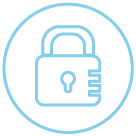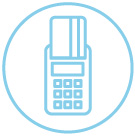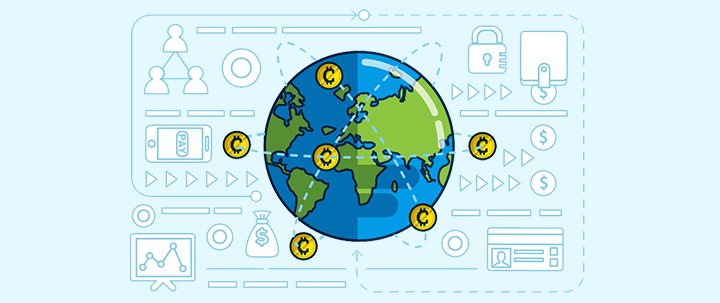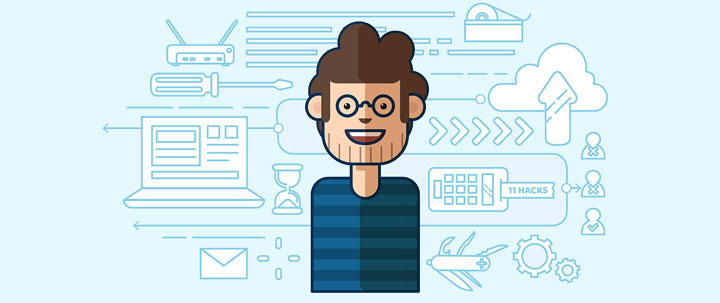By Andrew Frawley
2017 has seen a spectacularly wild ride for Bitcoin. The digital currency started the year at below $1000 USD but rapidly accelerated into stratospheric levels, hitting the $14000 USD mark this week, as investors jumped in ahead of the launch of Bitcoins futures by the major exchanges.Bitcoin: The Next Bubble or the Next Big Thing?
Experts say that the chance of a Bitcoin crash in the near future is greater than 80% (most expect a 40% plunge), but this hasn’t dampened the enthusiasm of investors trying to hop on the wild "high risk, high reward” ride that this cryptocurrency has offered so far this year.
However, not everyone is a fan. Alan Greenspan (former Federal Reserve Chairman) famously said that “Bitcoin is really a fascinating example of how human beings create value…and it’s not always rational”.
"You cannot tell me that you can create out of nothing, something which has a medium of exchange value", continued Greenspan, "Bitcoin is not a rational currency".
But this doesn't mean that Bitcoin won’t become a commonly used (and maybe even preferred) instrument of trade in the near future. As long as people believe they can unload Bitcoins on someone else, this will be enough to create and maintain a market.
"Humans buy all sorts of things that aren't worth anything," Greenspan added, "People gamble in casinos when the odds are against them. It has never stopped anybody."
But First things First. What exactly is a Cryptocurrency?
Cryptocurrencies are one of the hottest topics on the web right now. Within the blink of an eye, people are becoming Crypto-millionaires with Bitcoin, Ethereum, Monero and many others. But cryptocurrencies do much more and serve many purposes, and that’s what we are here to investigate.
Considering that The World Economic Forum has predicted that by 2025, 10% of global GDP will be in blockchain currency (this equates to about $8 trillion US dollars), it's easy to see that this cryptocurrency thing has become sort of a big deal.

What even is Cryptocurrency and the Blockchain?
Before we cover cryptocurrency, we should first cover what currency itself actually is. Currency isn’t just the American Dollar or the British Pound, etc.
Think of currency as a storage unit for value. It could be pretty shells from the beach, pieces of paper, or digital code. Currency is a unit of value that can be traded for other forms of value, a.k.a., goods and services.
Your time is valuable. It's a scarce resource. When you work, you bring value to a customer or company and they, in turn, give you a number of dollars that represent the equivalent value of your time and work output. You've effectively exchanged your time value for their paper dollar value.
Currency is the word we use to describe these stored units of value.
Cryptocurrency is the digital form of these stored units of value.
In other words, it's a currency (storage unit of value) written in computer code.
The word crypto comes from cryptography which comes from the Greek words kryptós (κρυπτός), meaning "hidden, secret", and "graphein" (γράφειν), meaning to "scratch, write".
What has made traditional currencies work through history is that they are centralized, and backed by huge entities like governments, Kings, Queens, banks, etc., that have created them, and promised on their worth.
That backing is what has historically helped put people's trust behind a piece of paper, or metal, which can be traded for real goods and services.
The downside of traditional currencies is that the governments that back them tend to be the highest authority of the land, making the rest of the population in any given country susceptible to their decisions.
If a country is well managed and respected internationally, it goes a long way towards helping the value of their currency, but if a country is not well managed, or it's a pariah state like North Korea, Cuba, etc., it can make their currency virtually worthless in the international market.
Cryptocurrencies, however, don’t have that centralized control, they are what people call a peer-to-peer network. It's a currency from the people for the people.
Cryptocurrencies were born out of discontentment with traditional (central) banking systems. That's why there is no central institution or authority behind them. How much one Bitcoin or Ethereum is worth is entirely decided by the free market dynamics within the community.

Bitcoin: The First Cryptocurrency.
Bitcoin's origin remains shrouded in mystery. In 2008, a nine-page white paper titled: Bitcoin: A Peer-to-Peer Electronic Cash System was posted to a cryptography mailing list. It's author: Satoshi Nakamoto.
In 2009 Nakamoto implemented the Bitcoin software as an open source code and released it to the world, where it was eagerly adopted by several programmers, who quickly set out to make sure that the Bitcoin system would not be dependent on any one person (or entity).
In 2011 Nakamoto vanished. No one has ever met him in person.
Nakamoto kept to himself 1 million Bitcoins (out of the 21 million Bitcoin limit), making him the largest holder of Bitcoin in the world (approx. 5% of the total).
In spite of Mr. Greenspan's observations, there's 3 billion USD in Bitcoin trades every day (so the trust is there).
But without central order, why do people trust this made up currency of nothingness? One of the reasons is scarcity. For example, the supply of Bitcoins is held artificially scarce by applying a limit to the number of Bitcoins that can ever be mined (21 million Bitcoins).
If we remember from earlier, currency is based on perceived value. Cryptocurrencies have become perceived as carrying high value because they are direct, decentralized and easy to use in peer-to-peer transactions. But ultimately their real (and one would argue only) value is how much one person is willing to pay another for it.
Safer than Real Money?
How can a made up currency created by obscure coders be safer than traditional currencies?
The biggest differentiator for cryptocurrencies over traditional money is something called the blockchain.
The original cryptocurrency, Bitcoin, was built on the revolutionary concept of what is called blockchain. Blockchain not only decentralizes the ledger (a book of financial transactions) it actually distributes a copy of the ledger to every single person in that currency network.
So instead of having the ledger be available only to banks & governments, there is a copy of the ledger on every single transaction on everyone’s computer which synchronizes and updates with the other ledgers every 10 minutes.
So if someone attempted to manipulate, hack or duplicate Bitcoin, when the system updates and synchronizes, it wouldn’t match the information on everyone else’s servers.
For example: If you have 10 Bitcoins, then 10 minutes later magically have 100 Bitcoins, when the server updates, it will notice that your new amount of Bitcoins doesn't match with the data on the rest of the computer networks and would essentially override your change.
The only way to ever manipulate a cryptocurrency would be to have 51% of all computers in the network agree that a certain change happened, but when these networks are open to everyone in the world, it is essentially impossible.
So what does this mean for small businesses and IT Helpdesks?
According to a recent poll from Microsoft, the number one way to impress, retain and prevent customer loss is to be up to date on new technology.
And as an owner of a small business, particularly an IT Helpdesk business, staying on top of the latest developments in cryptocurrency can mean the difference between a profit and a loss.
To Crypto or Not to Crypto?

Cryptocurrencies can help your business save some cash: Consider this, in past years, U.S. merchants have had to pay over $78 billion in credit card and debit card processing fees. Since cryptocurrencies are decentralized, you don’t need to pay a bank to verify each transaction, allowing small businesses to cut down the costs of managing credit transactions.

You’ll increase security: As an IT Helpdesk business, maintaining your own (and your customer's) network security is literally the main job. Cryptocurrencies are more secure than traditional banking and use send-only protocols, which means customers don’t need to share any personal data to use them for payment.
By becoming familiar with cryptocurrencies, you'll not only be able to make safer and faster transactions, giving your business a greater reach, but you can also educate your clients on how to create safer transactions, thereby giving your business incredible value and attracting new customers.
Consider this: research shows that 17% of all shopping cart abandonment is due to privacy concerns. When you run a business that relies on online payments and e-commerce, it can bring insane value if you introduced to your customers this safer form of payment.

It’s faster: This isn’t that much of a game changer, but it’s helpful and an improvement. Cryptocurrencies are generally available in real-time, if not immediately.

It’s international: Going abroad for a Managed Service Provider is one of the tricks to scaling big-time. The ability to hit other markets only amplifies the benefits of everything listed above. While dealing with paying people overseas can sometimes feel like funky business, with cryptocurrencies, it is safer, faster and you won’t have to deal with the increased bank transfer paperwork.

Reduce Fraud: Cryptocurrencies are similar to cash, in that you either have it or you don’t and all transactions are final. This is because of the blockchain system we talked about earlier.

Conclusion
Cryptocurrencies are new and may seem mysterious, but with their built-in safety, convenience, and decentralization, their growth as a new currency seems inevitable.
As 10% of the world’s GDP is projected to be invested into cryptocurrencies in the next 10 years, the worth of those currencies will rise. Enabling your business to collect these coins now (as forms of payment) could prove to be your best business move yet.



%201.png?width=559&height=559&name=close-up-women-working-with-devices%20(1)%201.png)







